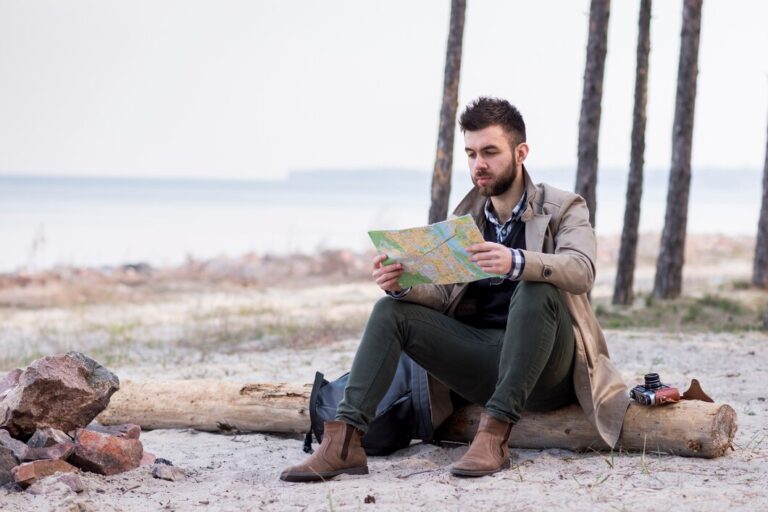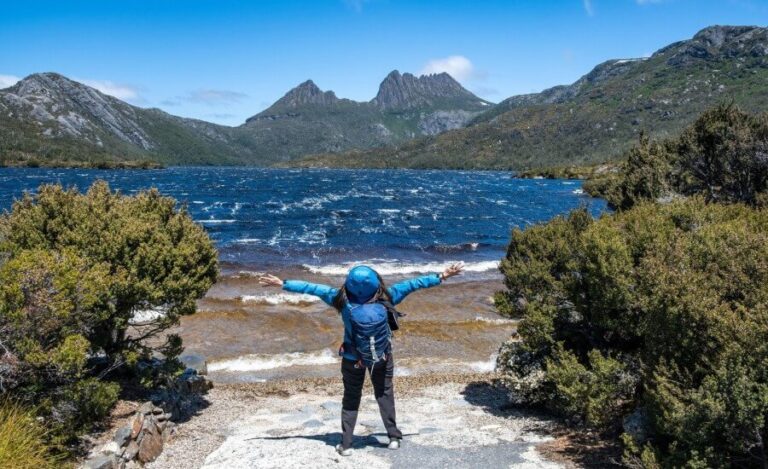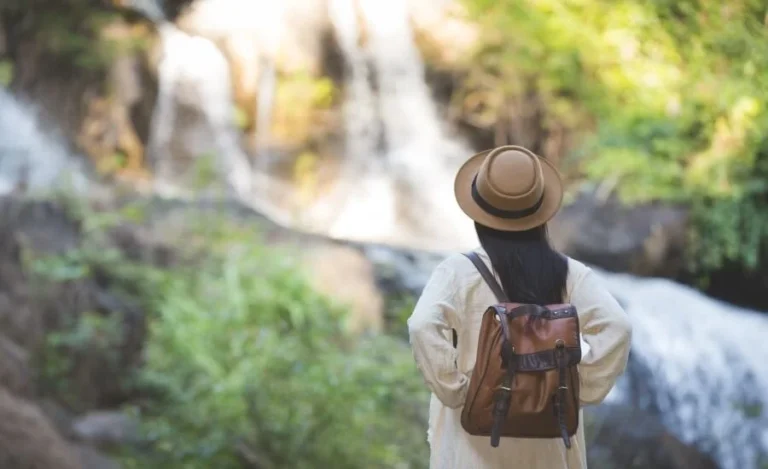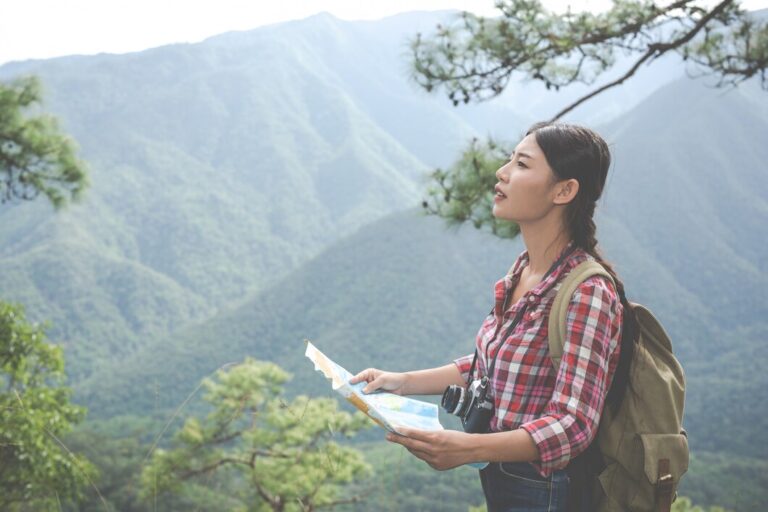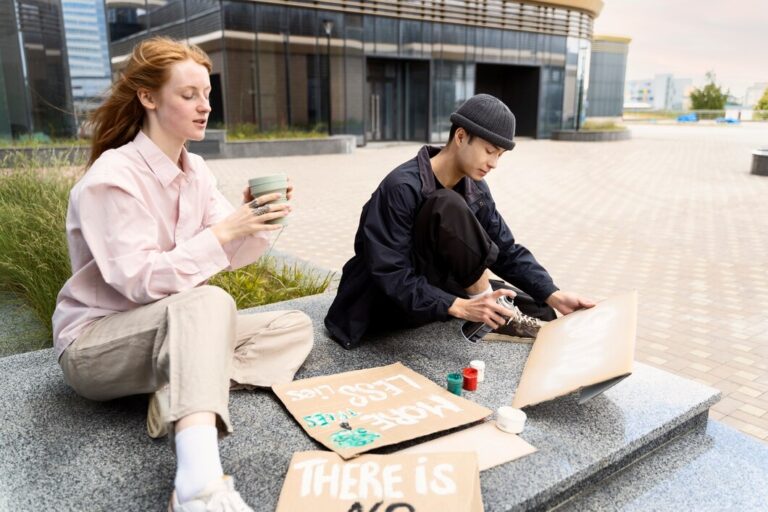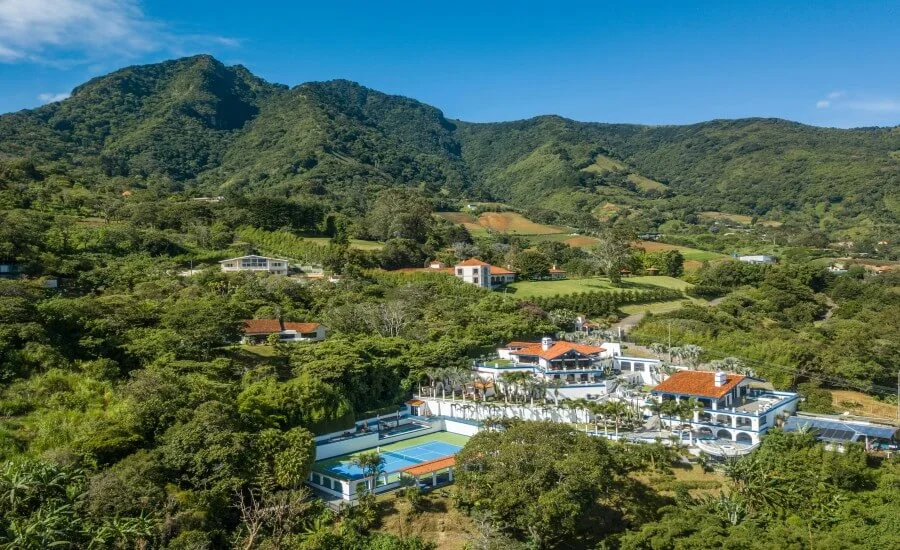
As the sun rises over a pristine coral reef, you sip locally grown coffee on the deck of your solar-powered villa. The furniture beneath you is crafted from reclaimed wood by local artisans, while the structure itself was built using traditional techniques that required no heavy machinery. Tonight’s dinner ingredients are already being harvested from the resort’s regenerative garden. This isn’t just luxury accommodation it’s a new paradigm of responsible indulgence that proves extraordinary experiences don’t have to come at the earth’s expense.
The concept of luxury travel has undergone a profound transformation. Where excessive consumption and environmental disregard once defined high-end hospitality, a new vision has emerged one where true luxury lies in experiences that nourish both guest and planet. The most forward-thinking resorts now understand that sustainability isn’t just an ethical choice but an enhancement that creates more meaningful, authentic experiences.
In this guide, you’ll discover seven remarkable properties that have redefined luxury through environmental stewardship and social responsibility.
These pioneering resorts demonstrate that the most memorable indulgences often come from immersion in pristine natural environments, connection with local cultures, and the peace of mind that your presence contributes to preservation rather than degradation.
From solar-powered overwater bungalows to forest canopy suites built without cutting a single tree, these destinations offer experiences impossible to replicate in conventional luxury settings.
Most importantly, these resorts encourage a different kind of luxury presence instead of distraction, connection instead of consumption, and mindful appreciation of extraordinary environments that remain unspoiled for future generations.
Top 7 Eco Resorts that Blend Luxury with Authentic Sustainability
1. Soneva Fushi, Maldives: The Original Barefoot Luxury Pioneer

Hidden within its own private island in the Maldives’ Baa Atoll, Soneva Fushi has spent over 25 years perfecting the delicate balance between indulgence and sustainability. The resort’s “SLOW LIFE” philosophy (Sustainable, Local, Organic, Wellness, Learning, Inspiring, Fun, Experiences) has revolutionized luxury hospitality by demonstrating that environmental responsibility enhances rather than diminishes guest experiences.
What makes Soneva Fushi exceptional is its comprehensive approach to sustainability. The Eco resort operates entirely carbon-neutral adventures through a combination of solar power (one of the largest solar installations in the Maldives), waste-to-wealth programs that recycle 90% of solid waste, and extensive carbon offsetting. Yet these initiatives remain largely invisible to guests, who experience them through the lens of enhanced luxury—glass water bottles that improve taste, organic gardens that provide fresher ingredients, and pristine marine environments preserved through rigorous conservation.
The property’s 63 beachfront villas exemplify thoughtful design that minimizes environmental impact while maximizing guest experience. Constructed from sustainable materials including reclaimed wood and built to work with natural ventilation patterns, each villa creates an indoor-outdoor living experience that connects guests with the surrounding environment.
The absence of conventional luxuries like marble bathrooms and gold fixtures is more than compensated by outdoor rain showers beneath tropical foliage and private swimming pools designed to blend with natural landscapes.
What truly elevates Soneva’s approach is its “intelligent luxury” concept, where digital disconnection is positioned as a premium experience. The “no news, no shoes” policy encourages guests to leave behind not just footwear but digital tethers, with connectivity limited to specific areas rather than pervasive throughout the property. This intentional limitation transforms disconnection from sacrifice into privilege—the luxury of being fully present in an extraordinary environment.
The Eco-friendly resort’s exceptional marine conservation programs offer guests participation in meaningful preservation work alongside marine biologists, creating experiences far more memorable than conventional luxury amenities. From coral restoration to sea turtle monitoring, these opportunities transform passive vacation consumption into purposeful experience that continues to resonate long after departure.
Key Points:
- Carbon-neutral operation through solar power and comprehensive recycling
- Villa design maximizes natural elements rather than resource-intensive materials
- “No news, no shoes” philosophy reframes digital disconnection as premium experience
- Marine conservation programs transform guests from consumers to contributors
- Organic gardens and zero-waste restaurants enhance culinary quality through sustainability
2. Bisate Lodge, Rwanda: Conservation-Led Luxury in Gorilla Territory

Nestled within the natural amphitheater of an eroded volcanic cone, Wilderness Safaris’ Bisate Lodge has redefined luxury African safari experiences through its restoration-focused approach. Just minutes from Rwanda’s famous gorilla trekking experiences, this remarkable property demonstrates how conservation leadership creates more meaningful luxury than conventional opulence.
What distinguishes Bisate is its landscape rehabilitation mission. Built on previously deforested land, the property has planted over 150,000 indigenous trees as part of an ambitious forest restoration project that has transformed bare agricultural plots into thriving habitat. Guests participate directly in this regeneration by planting trees during their stay, creating personal investment in the landscape’s future.
The lodge’s six spherical thatched villas draw inspiration from traditional Rwandan palace architecture while incorporating contemporary sustainable building practices.
Constructed primarily from locally sourced materials using community labor, each villa features dramatic views of surrounding volcanoes through floor-to-ceiling windows that minimize artificial lighting needs. Recycled glass, sustainable wood, and local stone create interiors that feel simultaneously luxurious and authentic to place.
What makes Bisate truly exceptional is how it has redefined the conventional luxury paradigm in safari experiences. Rather than emphasizing “bigger” and “more,” the property focuses on meaningful connections to conservation efforts, culture, and place—with just six villas generating substantial funding for habitat restoration and community development.
The lodge’s community integration extends far beyond typical corporate social responsibility. Local residents comprise 85% of staff, while culturally appropriate revenue-sharing models ensure tourism benefits extend throughout surrounding villages. Guests experience this authentic relationship through cultural immersion opportunities including traditional food preparation, craft demonstrations, and community visits structured for mutual exchange rather than voyeuristic tourism.
Key Points:
- Ambitious reforestation project has transformed degraded land into thriving habitat
- Architectural design draws from traditional forms while incorporating sustainable practices
- Limited occupancy (just six villas) minimizes impact while maximizing experience quality
- Conservation participation replaces conventional luxury amenities as primary guest experience
- Genuine community integration creates authentic cultural connections impossible in conventional luxury settings
3. Bambu Indah, Bali, Indonesia: Radical Sustainability as Ultimate Luxury

In the cultural highlands of Ubud, Bali, Bambu Indah represents perhaps the world’s most radical rethinking of luxury hospitality through its absolute commitment to sustainability principles. Created by John and Cynthia Hardy (founders of the renowned Green School Bali), this extraordinary property demonstrates how creativity and environmental commitment can produce experiences impossible to replicate in conventional luxury settings.
What makes Bambu Indah exceptional is its “primitive luxury” approach that returns to fundamentals—exceptional natural environments, healthy buildings, and meaningful human experiences—rather than resource-intensive conventional amenities.
The property’s collection of restored Javanese bridal houses and dramatic bamboo structures prove that architectural distinction comes through design intelligence rather than expensive, environmentally damaging materials.
The resort operates completely on renewable energy through a combination of solar power, micro-hydro generation from adjacent river, and innovative copper cooling systems that eliminate conventional air conditioning.
Wastewater becomes irrigation for extensive permaculture gardens that supply the property’s celebrated farm-to-table restaurants. These systems remain visible rather than hidden, becoming educational components of the guest experience.
What elevates Bambu Indah beyond even most eco-resorts is its complete reinvention of luxury standards. Natural swimming pools filtered by plants replace chlorinated alternatives.
Hand-crafted copper showers and volcanic stone bathtubs create memorable bathing experiences while using a fraction of the water required by conventional facilities. Open-air designs connect guests directly to nature while eliminating energy-intensive climate control.
The most luxurious experiences at Bambu Indah come through complete immersion in extraordinary natural and cultural environments. Rather than isolating guests from surroundings, the property integrates directly with neighboring rice fields, traditional ceremonies, and cultural life.
This transparency extends to sustainability practices, with guests encouraged to explore all systems from water filtration to composting to understand the property’s relationship with its environment.
Key Points:
- Architectural approach celebrates traditional techniques and natural materials
- Completely renewable energy through integrated solar, hydro and passive systems
- Natural swimming pools and chemical-free water systems enhance health and experience
- Permaculture gardens provide food while demonstrating regenerative agricultural practices
- Transparency in operations creates educational components within luxury experience
4. Fogo Island Inn, Newfoundland, Canada: Economic Revival Through Sustainable Design

Perched on stilts along the rugged Atlantic coastline of Newfoundland, Fogo Island Inn demonstrates how architectural brilliance combined with social enterprise can revitalize struggling communities while creating extraordinary luxury experiences. This remarkable property proves that genuine sustainability must address cultural and economic dimensions alongside environmental considerations.
What distinguishes Fogo Island Inn is its community-centered business model. Operated as a social enterprise with all operating surpluses reinvested in the local community, the inn was conceived as direct response to the collapse of Newfoundland’s cod fishing industry that threatened island communities with extinction. This mission permeates every aspect of operations, from employment practices to supply chains to experiences offered.
The award-winning architecture exemplifies sustainable design excellence. The dramatic stilted structure minimizes ground impact while respecting historic building patterns that recognized harsh North Atlantic weather conditions.
Advanced insulation, geothermal heating, rainwater collection, and solar thermal systems create environmental performance far exceeding conventional buildings while the striking silhouette has become an internationally recognized design icon.
What makes stays at Fogo Island truly exceptional is the complete reimagining of luxury through place-based authenticity. Rather than importing conventional luxury markers, the inn celebrates local traditions, materials, and craftsmanship.
Each piece of furniture comes from the island’s woodshop, textiles from local guilds, and cuisine from ingredients harvested from surrounding waters and wilderness. These elements create experiences impossible to replicate elsewhere.
The property’s most innovative contribution may be its community hosting program, where local residents serve as cultural guides sharing deep knowledge of place accumulated over generations.
This approach transforms conventional hospitality roles from service to knowledge-sharing, creating more meaningful exchanges for both guests and community members while preserving cultural traditions at risk of disappearing.
Key Points:
- Social enterprise model directs all operating surpluses to community foundation
- Architectural design respects traditional building practices while incorporating advanced sustainability
- Furniture, textiles, and accessories created by local craftspeople rather than imported
- Community hosting program transforms tourism relationships from service to exchange
- Economic sustainability creates community resilience alongside environmental benefits
5. Fregate Island Private, Seychelles: Conservation Success as Exclusive Experience

On a remote granite island in the Seychelles archipelago, Fregate Island Private has transformed one of the world’s most ambitious conservation success stories into an unparalleled luxury experience.
With just 16 villas sharing a 740-acre private island, this extraordinary property demonstrates how habitat restoration can create more compelling experiences than conventional development.
What makes Fregate exceptional is its remarkable conservation achievement. When current ownership acquired the formerly exploited island, they embarked on one of the most comprehensive ecosystem restoration projects ever attempted.
The results have been extraordinary—the Seychelles magpie robin rescued from the brink of extinction (from just 14 birds to over 200), more than 3,000 giant Aldabra tortoises roaming freely, and indigenous forest regenerated across formerly degraded landscapes.
This conservation commitment extends throughout operations with comprehensive sustainability initiatives. The island maintains its own solar power plant providing the majority of energy needs, operates extensive organic gardens supplying 80% of produce, collects and purifies rainwater, and has eliminated single-use plastics entirely.
These operations remain largely invisible to guests, who experience them through exceptional quality and environmental richness rather than obvious sustainability marketing.
What elevates Fregate beyond even most luxury destinations is how conservation success enhances guest experiences. The property’s “anything, anytime, anywhere” service philosophy takes advantage of the pristine environment—private dinners on secluded beaches, treehouse dining platforms amid restored forest canopy, and personalized experiences in locations untouched by development.
This approach proves that environmental preservation creates more compelling settings than conventional development could achieve.
The island’s seven beaches remain free from permanent structures and available for private reservation—guests simply display the “Beach Occupied” sign to ensure complete privacy in pristine natural settings. This experience of untouched nature represents the ultimate luxury in an increasingly developed world, demonstrating how conservation creates exclusivity more meaningful than artificial restrictions.
Key Points:
- Comprehensive ecosystem restoration as foundation for luxury experience
- Endangered species recovery creates wildlife encounters impossible elsewhere
- Operational sustainability through solar power, water conservation, and organic agriculture
- Preservation of natural environments creates more compelling settings than development
- Conservation focus attracts guests seeking meaningful experiences beyond conventional luxury
6. Pacuare Lodge, Costa Rica: Rainforest Immersion Without Environmental Compromise
Accessible only by white-water raft or hiking trail, Pacuare Lodge demonstrates that extraordinary experiences emerge from embracing rather than conquering natural environments. This remarkable property, nestled within 25,000 acres of protected Costa Rican rainforest, proves that the absence of conventional infrastructure enhances rather than diminishes genuine luxury experiences.
What distinguishes Pacuare is its commitment to operating without compromising environmental principles. The entire lodge functions without a single power line, road, or connection to municipal services.
All structures were built by hand without heavy machinery that would damage forest ecosystems, with materials either harvested sustainably onsite or carried in by human power. These limitations have inspired creative solutions that enhance rather than diminish guest experiences.
The property’s 20 suites exemplify how sustainability drives design excellence. Open-air structures with strategic orientation maximize natural ventilation, eliminating need for air conditioning in tropical environments. Rainforest canopy provides natural cooling, while careful placement preserves primary trees and wildlife corridors.
Thatch roofing, sustainably harvested wood, and natural materials create spaces that feel integrated with rather than imposed upon the surrounding forest.
What makes Pacuare truly exceptional is how operational constraints have created more memorable experiences. Limited electricity (provided by solar with small hydroelectric backup) means evenings illuminated primarily by thousands of candles creating atmosphere impossible to replicate in conventional settings.
The absence of artificial noise allows guests to experience the rainforest symphony uninterrupted. Limited connectivity eliminates digital distractions that would diminish immersion in extraordinary natural surroundings.
The property’s innovative cultural programming creates genuine exchange with indigenous Cabécar communities who maintain traditional lifeways within surrounding forest.
Rather than exhibiting culture as performance, the lodge facilitates authentic sharing through guided forest walks focusing on medicinal plants, traditional craft workshops, and support for community-directed initiatives that strengthen rather than commodify cultural practices.
Key Points:
- Absence of conventional infrastructure creates more immersive natural experience
- Hand-built structures demonstrate minimal-impact construction techniques
- Limited electricity transforms constraint into atmospheric enhancement through candlelight
- Innovative design eliminates need for energy-intensive cooling in tropical environment
- Authentic indigenous cultural exchange rather than performative tourism
7. Grootbos Private Nature Reserve, South Africa: Biodiversity Conservation as Luxury Foundation

Overlooking Walker Bay in South Africa’s Western Cape, Grootbos Private Nature Reserve demonstrates how biodiversity preservation creates more compelling luxury experiences than conventional development ever could.
This extraordinary property, centered around protection of the endangered fynbos ecosystem (one of earth’s six floral kingdoms), proves that conservation-led hospitality represents luxury’s most promising future.
What makes Grootbos exceptional is its foundation in extensive botanical knowledge. The 2,500-hectare reserve protects over 800 plant species, including several previously unknown to science discovered during the property’s extensive research programs.
This biodiversity creates settings of remarkable beauty and complexity impossible to design artificially, while ongoing scientific programs provide intellectual depth beyond conventional nature tourism.
The reserve’s 16 freestanding suites represent sustainable design excellence through careful integration with surrounding landscapes. Built on stilted platforms to minimize ground disturbance, each incorporates large windows oriented toward ocean and fynbos vistas while maximizing passive solar benefits.
Living roofs planted with indigenous species provide natural insulation while extending habitat for pollinators and small wildlife.
What elevates Grootbos beyond conventional eco-luxury is its commitment to regional social transformation through the Grootbos Foundation. This nonprofit arm operates extensive skills development programs, sports-based youth development, and organic farming initiatives that address historical inequities in post-apartheid South Africa.
These programs transform tourism from extractive industry to catalyst for positive change, creating depth of experience impossible in conventional luxury settings.
The reserve’s most innovative offerings connect luxury with purpose through experiences like guided botanical safaris with researchers, marine adventures highlighting whale conservation, and participation in archaeological sites revealing 100,000 years of human history.
These experiences transform passive consumption into active learning while demonstrating how preservation creates more compelling settings than development.
Key Points:
- Biodiversity conservation of global significance creates setting impossible to replicate artificially
- Architectural approach prioritizes landscape integration and minimal disturbance
- Social development programs address historical inequities through tourism economy
- Research-based experiences create intellectual depth beyond conventional nature tourism
- Preservation of rare ecosystem transforms constraint into unique selling proposition
Conclusion: The New Definition of Eco Luxury Resorts

These seven extraordinary properties demonstrate that luxury’s future lies not in excess but in meaning—experiences that nourish rather than deplete, connections that enrich rather than extract, and operations that preserve rather than exploit.
The most forward-thinking hospitality visionaries have recognized that genuine luxury emerges from healthy ecosystems, vibrant cultures, and authentic experiences impossible to create through conventional development.
What unites these diverse properties across different environments and cultures is their recognition that true exclusivity comes from access to increasingly rare experiences—pristine natural environments, flourishing wildlife, traditional knowledge, and the luxury of undistracted presence.
By reframing sustainability not as sacrifice but as enhancement, these pioneers have created experiences that conventional properties cannot replicate regardless of budget.
For travelers seeking more meaningful luxury experiences, these properties offer a compelling alternative to conventional high-end hospitality.
By choosing destinations where environmental and social responsibility drive operations, guests become participants in preservation rather than contributors to degradation. This shift transforms luxury travel from momentary indulgence to meaningful investment in planetary wellbeing.
As you consider your next exceptional journey, remember that the most extraordinary experiences often come not from what has been added to environments but what has been preserved within them. The resorts that will define luxury’s future understand this essential truth—that our most precious resource is not gold or marble but the irreplaceable natural and cultural heritage that gives our world its remarkable diversity.

